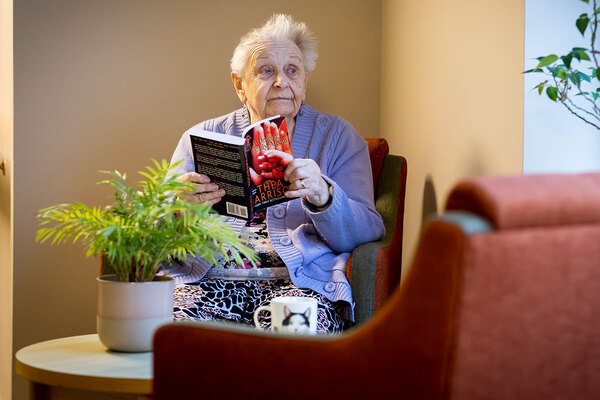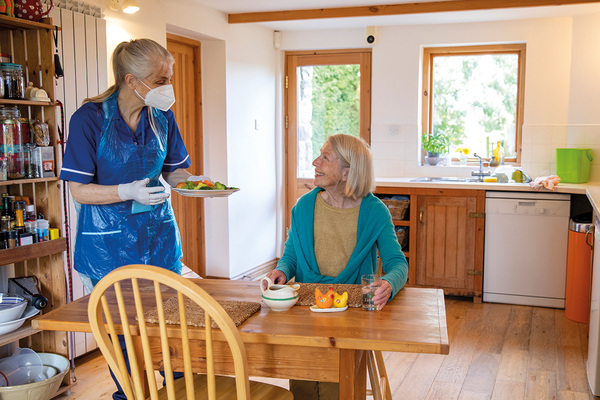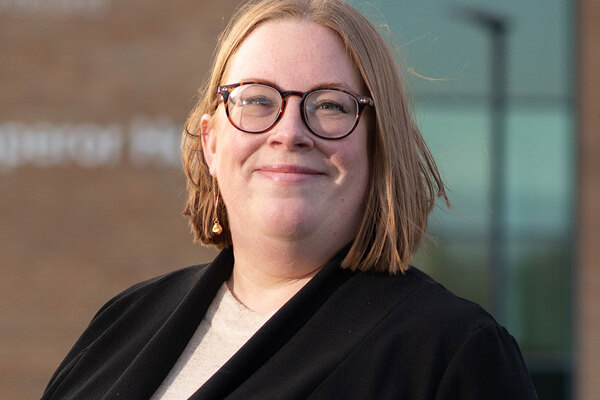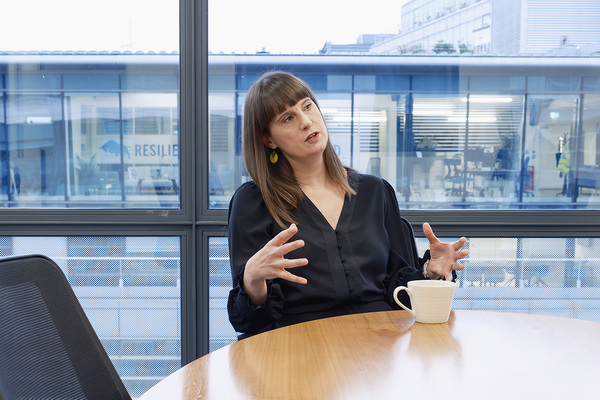You are viewing 1 of your 1 free articles
Taking a person-centred approach to supporting older tenants
Roy Sandbach, chair of Technology for our Ageing Population: Panel for Innovation (TAPPI), shares learnings from TAPPI projects across the country
Why are older people always lumped together as ‘over 65s’? My mother is 95, I’m 70, and certainly we are ageing, but do we have the same day-to-day living needs? Or the same worries? Or the same aspirations? Obviously not. But we both want to live better for longer at home. Simple.
Last year, I listened to Alice, an 88-year-old housing tenant in Scotland, telling me about her life. She explained that she might be slower than she used to be, but she’s still an individual and knows what she wants. Companies providing care technology, Alice insisted, really need to ask older people what they want before they put –sometimes useless – gadgets in place.
Alice’s advice came through the TAPPI project (Technology for our Ageing Population: Panel for Innovation). This inquiry, led by the Housing Learning and Improvement Network (LIN) and the TEC Services Association (TSA) and funded by Dunhill Medical Trust, delivered a set of principles for technology use in housing.
These principles are derived from deep, insightful conversations with older people and the professionals who work with them. We’ve been testing these principles with six housing providers across the UK.
For the past two years, Bield, Haringey Council, Platform Housing Group, Pobl Group, Southend Care and Wiltshire Council have worked in partnership with their older tenants, testing technologies and supporting individuals to choose and use devices.
It hasn’t been an easy ride. I’ve seen the challenges around engaging older tenants, many wary of technology or lacking in confidence. It takes time and trust.
But I’ve also seen benefits, often transformative. Staff at Southend Care told me about Rita, an older tenant with learning disabilities who, more confident with new wearable technology, took the bus to spend a day at the seafront, the furthest she’d travelled independently for five years.
“Care technology should be integrated into training curricula for all housing staff and housing providers”
I want to spread learnings from TAPPI so other housing providers can help older residents to live the lives they want to live.
Get the basics right
Ensuring homes have a reliable, affordable internet connection feels obvious, but many residents we worked with in sheltered, supported or extra-care housing didn’t have broadband. Bield surveyed tenants across three sites and found that 48% were unconnected to broadband, not by choice but due to digital inequalities and a lack of understanding.
In TAPPI, Bield prioritised digital literacy initiatives to address this digital divide early.
Co-produce early
All six housing providers found that taking time to involve tenants early in decisions about technology meant they were more likely to use it. Those that involved tenants after technology had been procured saw lower engagement.
Make it seamless
Many residents were frustrated that specialist devices, such as sensors and fall detectors, didn’t work together or join up with the familiar consumer technology they already used. In South Wales, Pobl Group took an upfront approach, challenging its suppliers to ensure any care technology they provided was interoperable.
Ensure it is affordable
The initial cost of devices can be an obstacle, along with ongoing expenses around broadband and maintenance. All six TAPPI housing providers put policies in place to overcome these problems.
For example, Platform Housing Group trained retirement housing officers to identify residents who might benefit from tried and tested tech. This was then loaned out and if it proved beneficial, residents were signposted to funding or supported to buy it themselves.
Keep it safe
Many older residents had fears about online safety, particularly scams. Wiltshire Council tackled this by offering residents training sessions in which digital safeguards and protection were shown, with the aim of building their confidence and trust in technology.
Support, support, support
One vital project insight was the need for accessible, ongoing training so older tenants could grow their digital skills at their own pace. This had a significant impact on engagement levels.
In North London, Haringey Council asked one of their tenants to become a TAPPI champion. She already used technology and began sharing her knowledge with fellow tenants, showing them how to use devices and answering their queries.
Near Edinburgh, Bield created an interactive ‘digital hub’ where residents explored technology using a hands-on approach. They’re also looking to create a tenant technology guide, with basic hints and tips.
All this is great operational work, but I also want to see wider, structural change.
Greater dialogue between housing providers, technology suppliers and local integrated care systems is vital, and creation of a vibrant consumer-facing marketplace for useful ‘independent living’ technology would benefit older people and their families hugely.
Beyond this, care technology should be integrated into training curricula for all housing staff and housing providers.
Last but not least, whichever government takes office later this year, an independent living strategy for older people, with housing and technology at heart, must be top of the agenda.
Sign up for our care and support bulletin
Already have an account? Click here to manage your newsletters












